Rats might not be everyone’s favorite creatures, but they certainly deserve a good laugh! We’ve scurried around the internet to collect the funniest rat jokes that’ll have you squeaking with laughter. Whether you’re a rodent enthusiast or just someone who appreciates a good punchline, our collection has something for everyone.
10 Hilarious Rat Jokes That Will Make You Squeak With Laughter
- Why don’t rats ever use smartphones? Because they’re afraid of mouse traps! We’ve noticed this joke always gets a chuckle at parties when the conversation turns to tech humor.
- What do you call a rat who works out? A gym-RAT! Fitness enthusiasts particularly enjoy this play on words that connects our rodent friends to workout culture.
- Why was the rat so good at math? Because he was great at multi-PIE-cation! This clever pun works perfectly whether you’re looking for kid-friendly humor or trying to lighten the mood during study sessions.
- How do rats send secret messages? Through the mouse-mail! In our digital age, this old-school communication joke brings a nostalgic smile to anyone who remembers the early days of email.
- What’s a rat’s favorite game? Cheese pursuit! This witty reference to the classic board game “Trivial Pursuit” always connects with both game lovers and those who appreciate rodent stereotypes.
- Why did the rat cross the road? To prove he wasn’t chicken! We’ve found this twist on the classic joke works especially well with mixed-age audiences who appreciate unexpected punchlines.
- What do you call a rat who steals? A burglar-RAT! Crime show fans particularly appreciate this playful take on criminal terminology applied to our furry friends.
- How do rats stay cool in summer? They use mouse-conditioning! This seasonal joke lands perfectly during hot weather conversations when everyone can relate to seeking relief from the heat.
- What’s a rat’s favorite TV show? Wheel of For-CHEESE! Game show enthusiasts immediately get this reference, making it perfect for breaking the ice at social gatherings.
- Why don’t rats ever get lost? They always follow their in-SQUEAK-ts! Nature lovers appreciate this clever wordplay that highlights the remarkable instincts of these intelligent creatures.
Why Rat Jokes Are Taking Over The Internet
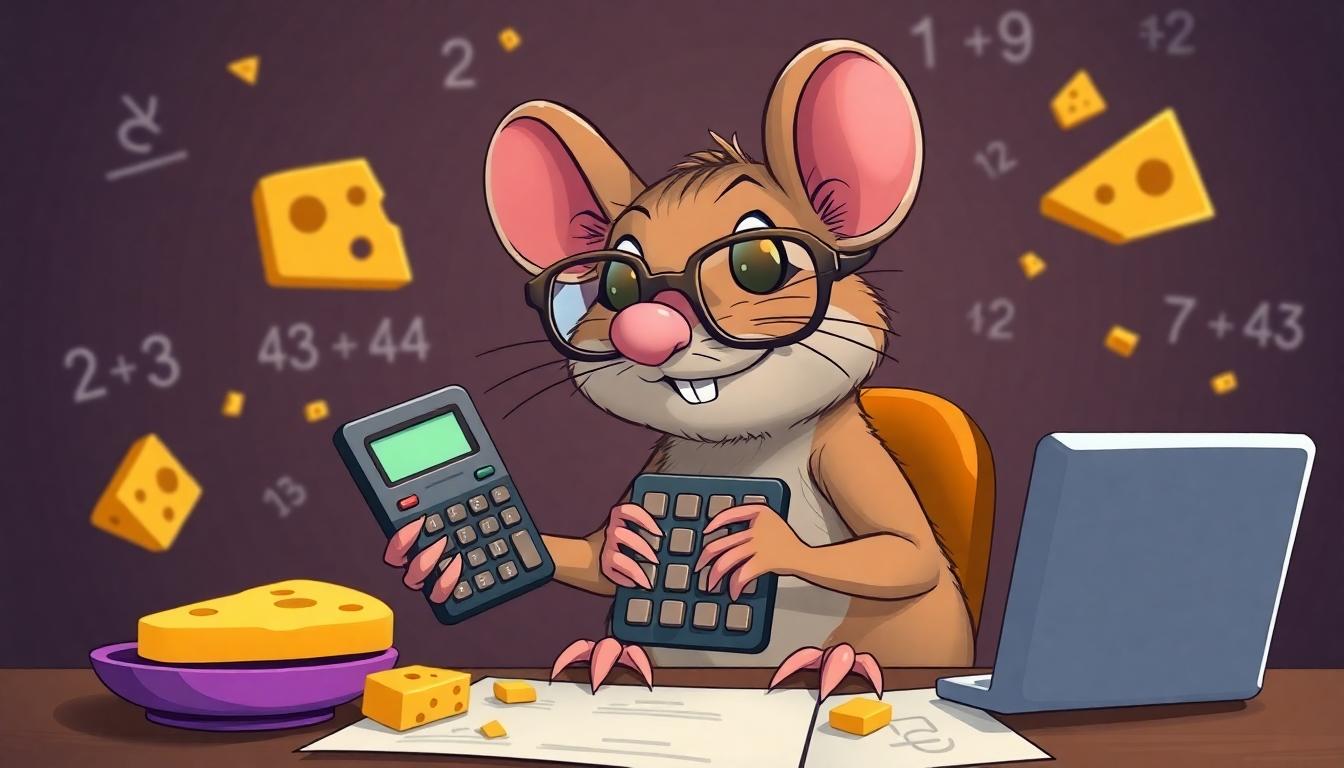
The Unexpected Charm Of Rodent Humor
Rat jokes have captured the internet’s attention with their lighthearted appeal and universal accessibility. Their charm lies in the simplicity and relatability that makes them perfect for diverse audiences of all ages. Children appreciate the silly puns about cheese and squeaky voices, while adults enjoy the more sophisticated wordplay and situational humor. Many popular rat jokes leverage common associations like “What’s a rat’s favorite dessert? Cheese cake!” or create unexpected twists like “What do you call a rat who loves math? A rat-hematician!” The versatility of rat-related humor allows it to span from innocent playground jokes to clever office banter, making it uniquely positioned to spread across various online communities.
How Rat Memes Became Mainstream
Rat memes have successfully infiltrated mainstream internet culture through their remarkable adaptability and shareability on social platforms. Social media algorithms favor this content because rat humor generates high engagement rates when featuring rodents in surprising contexts or with clever captions. Popular formats include rats portrayed in everyday human situations, often accompanied by captions that highlight the absurdity of the scenario. The rise of these memes coincides with the internet’s growing appreciation for quirky, unconventional humor that breaks from traditional joke structures. Major meme websites and content aggregators have further amplified rat-related content, creating a feedback loop where the popularity of rat jokes continues to grow as they reach new audiences. Their format makes them ideal for quick consumption during social media scrolling, contributing significantly to their widespread adoption across digital spaces.
The Best “Cheese-y” Rat One-Liners To Share At Parties
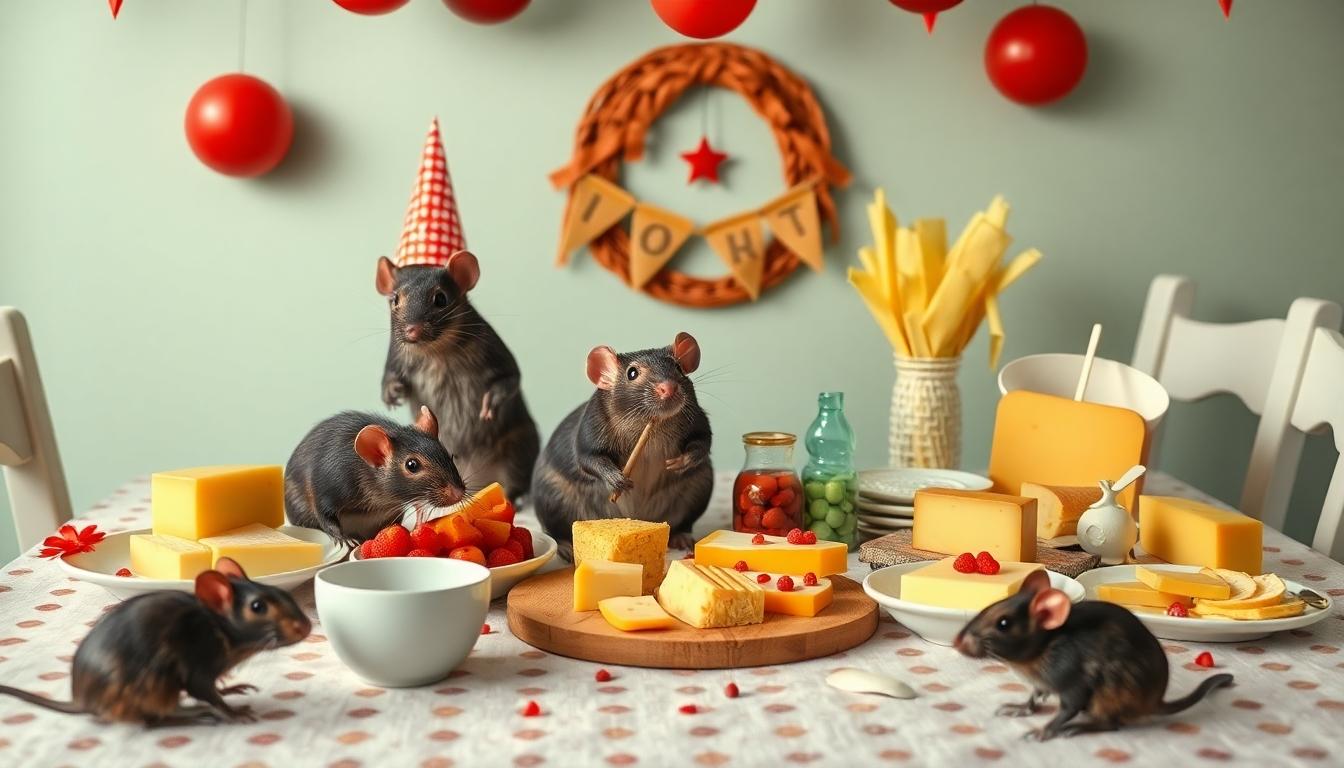
Looking to sprinkle some rodent-themed humor at your next gathering? These cheese-themed rat jokes are guaranteed to make your friends and family chuckle. Rat humor thrives on puns and culinary wordplay that everyone can appreciate.
What do you call a rodent that steals dessert? A pie-rat! This clever play on “pirate” works perfectly at parties where desserts are being served.
Why did the rat blush? Because it saw the cheese grater! This innocent joke plays on the “grate/great” homophone while keeping things family-friendly.
What’s a rat’s favorite dessert? Mice cream! This simple substitution of “mice” for “ice” creates an instantly memorable punchline that works for all ages.
Short And Sweet Rat Puns
Brief rat jokes pack a powerful punch when you need a quick laugh. These concise one-liners require minimal setup while delivering maximum humor.
What’s a rat’s favorite sport? Rat-letics! This playful twist on “athletics” works especially well with sports enthusiasts.
How do rats communicate long-distance? Rat-eophones! This wordplay creates an imaginary device perfect for rodent telecommunications.
What’s a rat’s dream job? Stand-up squeak-median! Comedy gets a rodent makeover with this pun that combines “comedian” with the characteristic sound rats make.
Clever Wordplay For Rodent Enthusiasts
True rat aficionados will appreciate these more sophisticated jokes that incorporate cultural references and occupational humor.
What’s a rat’s favorite Shakespeare play? Ham-rat! This literary reference cleverly transforms “Hamlet” into a rodent-appropriate theatrical production.
What do you call a singing rat? A mouse-ician! This versatile joke works for both mice and rats, making it doubly effective at parties.
Why are rats bad secret agents? They squeak under pressure! This joke plays on both the sound rats make and the idiom about cracking under pressure.
What do rats order at restaurants? Ratatouille! This reference to the famous French dish (and popular animated film) creates an instant connection with food lovers and movie buffs alike.
How do rats stay fit? Whisker-ups! This exercise-themed pun transforms “push-ups” into a rodent-friendly workout routine.
What’s their favorite instrument? Glockensqueak! This musical joke combines “glockenspiel” with the characteristic noise of a rat.
Family-Friendly Rat Jokes For Kids Of All Ages

We’ve gathered some delightful rat jokes that’ll have children of all ages giggling with glee. These clean, wholesome jokes are perfect for family gatherings, classroom settings, or anytime you need a good laugh.
- What do you call a rat who loves to play basketball? A slam rat!
- Why did the rat go to the gym? To get a little more squeaky fit!
- What did the rat say when he finished his puzzle? “I’m a real piece of work!”
- Why did the rat take a bath? He wanted to feel squeaky clean!
- What’s a rat’s favorite snack? Cheesy puffs!
- What do you call a rat that loves to play video games? A console rat!
Clean Rat Jokes For School
These jokes are perfect for sharing in a classroom environment or during school presentations about rodents. They’re guaranteed to earn some laughs without crossing any lines!
- What do you call a rat with a sword and a hat? A mouseketeer!
- Why should you never trust rodents? They always rat you out!
- What do you call a rat who loves to cook? A chef rat!
- What’s a rat’s favorite music? Hip-hop.
Rat Riddles That Children Will Love
Kids adore riddles that make them think before delivering a funny punchline. These rat-themed brain teasers will keep children engaged while improving their critical thinking skills.
- Why did the rat join the choir? He had a great squeak!
- Why did the rat start a gardening club? He wanted to grow some squeaky greens!
- What do you call a rat who loves to dance? A rat-tler!
Scientifically Accurate Rat Jokes For The Biology Nerds

Science-minded folks and biology enthusiasts will appreciate these laboratory-inspired rat jokes that blend accurate rodent research with clever wordplay.
Lab Rat Humor That Scientists Appreciate
Scientists working with rats have developed their own unique brand of humor based on actual research findings. Studies show that rats given caffeine demonstrate a 1% productivity gain, equivalent to what humans experience after six cups of coffee. This has spawned jokes like: “My lab rat drinks more coffee than our research team and still completes the maze faster!”
Behavioral conditioning experiments have inspired classics such as: “I’ve got my scientist well trained – he brings snacks whenever I push the buzzer.” This clever role-reversal humor resonates with researchers familiar with Skinner box experiments where rats learn to press levers for rewards.
Biology wordplay thrives in lab settings with terms like “Lab-solute genius” for particularly clever specimens and “Rodent-tine files” for meticulously organized experimental data. Researchers might chuckle at chemistry puns like: “Why did the rat fail chemistry? His titration was rodent-tary!” These specialized jokes create camaraderie among scientists dealing with the daily challenges of animal research.
Pet Rat Owner Inside Jokes
Domestic rat enthusiasts share their own collection of jokes that celebrate the distinctive behaviors of their furry companions. Food-related humor tops the list with classics like: “What do rats eat for breakfast? Mice crispies!” Pet owners frequently joke about their rats’ insatiable appetites with references to “strict chew-only diets” that mysteriously include everything from furniture to phone chargers.
Rat owners bond over shared experiences with quips like: “How do you make rats laugh? Tell them cheesy jokes!” This works on multiple levels, referencing both their love of cheese and their surprisingly expressive personalities. The concept of “pil-fered cheese” appears in many jokes about rats’ sneaky food-stealing abilities that any rat owner will recognize instantly.
These insider jokes resonate particularly well because they capture the unique relationship between rats and their human caretakers, highlighting behaviors that only those who live with these intelligent creatures would understand.
Historical Rat Jokes Throughout The Ages
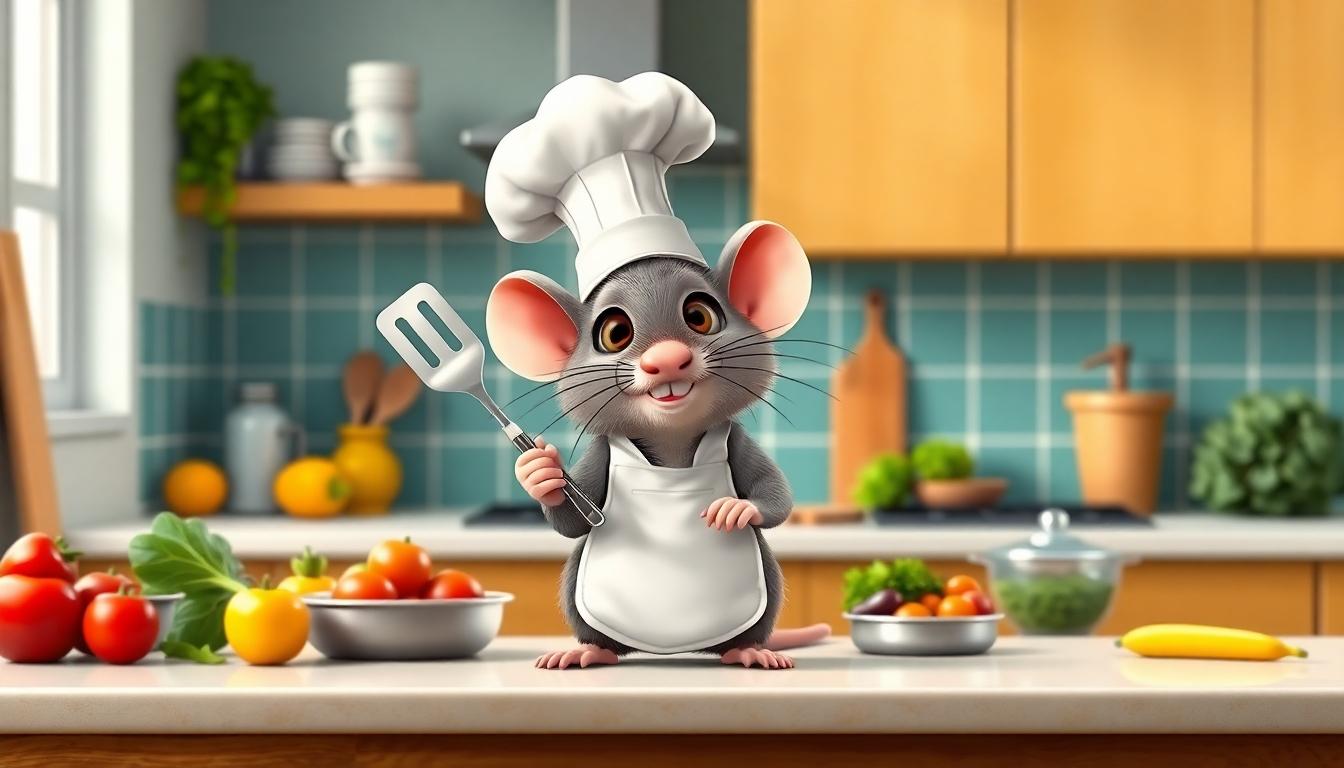
When examining the historical record of rat-themed humor, we find surprisingly few documented examples. Rats have appeared in satirical and allegorical works throughout history, typically symbolizing cunning or representing unwelcome pests. Ancient texts and folklore occasionally featured rodents in humorous contexts, though exact rat jokes from antiquity remain elusive. The rat’s persistent presence as a troublesome creature likely inspired many comedic tales that simply weren’t preserved through the centuries.
Medieval Rat Humor During The Plague
During the medieval period, particularly when the Black Death ravaged Europe, rats became unwitting subjects of dark humor and satire. Their notorious association with disease and suffering made them natural targets for gallows humor as people coped with devastating circumstances. Historical records provide limited examples of exact rat jokes from this era, but medieval satirical works frequently used rats allegorically. These rodents featured in jest-filled commentaries about public health, misfortune, and society’s ills, reflecting the era’s tendency to use humor as a coping mechanism during extraordinarily difficult times.
Modern Rat References In Pop Culture
Modern entertainment embraces rats in surprisingly positive comedic roles across various media formats. Films like “Ratatouille” revolutionized the rat’s image by portraying Remy as a sympathetic, talented chef with sophisticated tastes. TV shows frequently include rat characters delivering punchlines or serving as clever sidekicks, moving beyond traditional pest stereotypes. Contemporary rat jokes often rely on clever wordplay, such as the pun-laden “Mice Krispies” being a rat’s preferred breakfast cereal. Social media platforms regularly feature rat-centric memes that humanize these rodents in absurd situations. Comedy routines incorporate rats as metaphors for urban living or unexpected intelligence, demonstrating how versatile these creatures have become in modern humor. Their transformation from medieval harbingers of disease to beloved animated characters showcases society’s evolving relationship with these misunderstood rodents.
How To Craft Your Own Original Rat Jokes
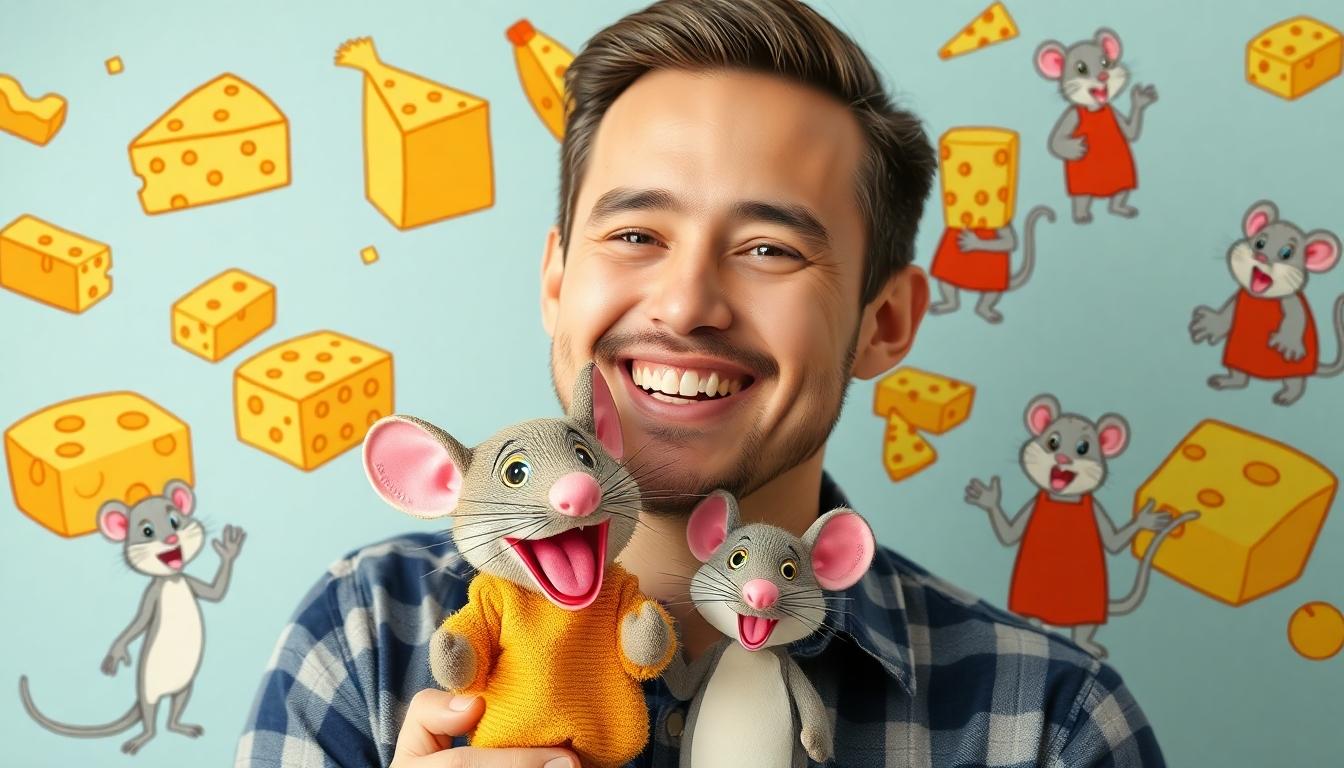
Ready to create your own whisker-twitching humor? We’ve compiled proven formulas and stereotypes to help you create original rat jokes that will have everyone squeaking with laughter.
Formula For Creating Rodent-Related Humor
- Combine Rodent Traits With Wordplay – Mix natural rat characteristics (chewing, scurrying, tails) with clever wordplay. Try using homophones like “mice/might” or experiment with prefixes and suffixes such as “pi-rat-e” or “Mouse-or-ratty” for instant puns.
- Trait + Human Context – Place rat characteristics into relatable human scenarios for maximum humor. For example: “Why did the rat join a band? For the squeak solos!” This effectively combines a musical term with a rodent’s vocal trait.
- Use Brand Parodies – Transform familiar products or brands into rat-themed versions. “What’s a rat’s favorite cereal? Mice Krispies!” This plays on both the diet stereotype and creates a recognizable parody.
- Employ Rhyme And Alliteration – Create memorable jokes with sound patterns like “Scaredy-mouse” to highlight timidity or “Rat-tling success” to pun on laboratory experiments.
- Create Contrast – Juxtapose size or status differences for humor, such as combining “elephant + rat = relephant” or contrasting human and rodent logic with wordplay like “rat-achoo-ouille” for a cold.
Common Rat Stereotypes To Play With
- Laboratory Subjects – Leverage the famous “lab rat” trope with jokes about experiments, scientific equipment, or the metaphorical “rat race.” Scientists and researchers particularly appreciate these intellectually themed jokes.
- Urban Pests – Generate humor around household infestations with jokes about “rattled” homeowners or the classic cheese obsession that’s become synonymous with rodents in popular culture.
- Cultural Roles – Transform rats into characters from well-known professions or stories. Pirates (“pi-rat-e”), detectives (“Sherlock Hol-mice”), or airlines (“Emi-rat-es”) offer fertile ground for creative wordplay.
- Behavioral Traits – Incorporate authentic rat behaviors like squeaking, scavenging, and speed into your jokes for authenticity that resonates with those familiar with actual rat conduct.
- Food Preferences – Beyond cheese, explore rats’ diverse diet by incorporating foods like fruits, grains, and sweets into your jokes for fresh takes on the classic food-based rat joke format.
- Social Nature – Use rats’ highly social characteristics to create jokes about rat communities, families, or friendship circles that mirror human social dynamics in humorous ways.
When Rat Jokes Cross The Line: Keeping It Tasteful
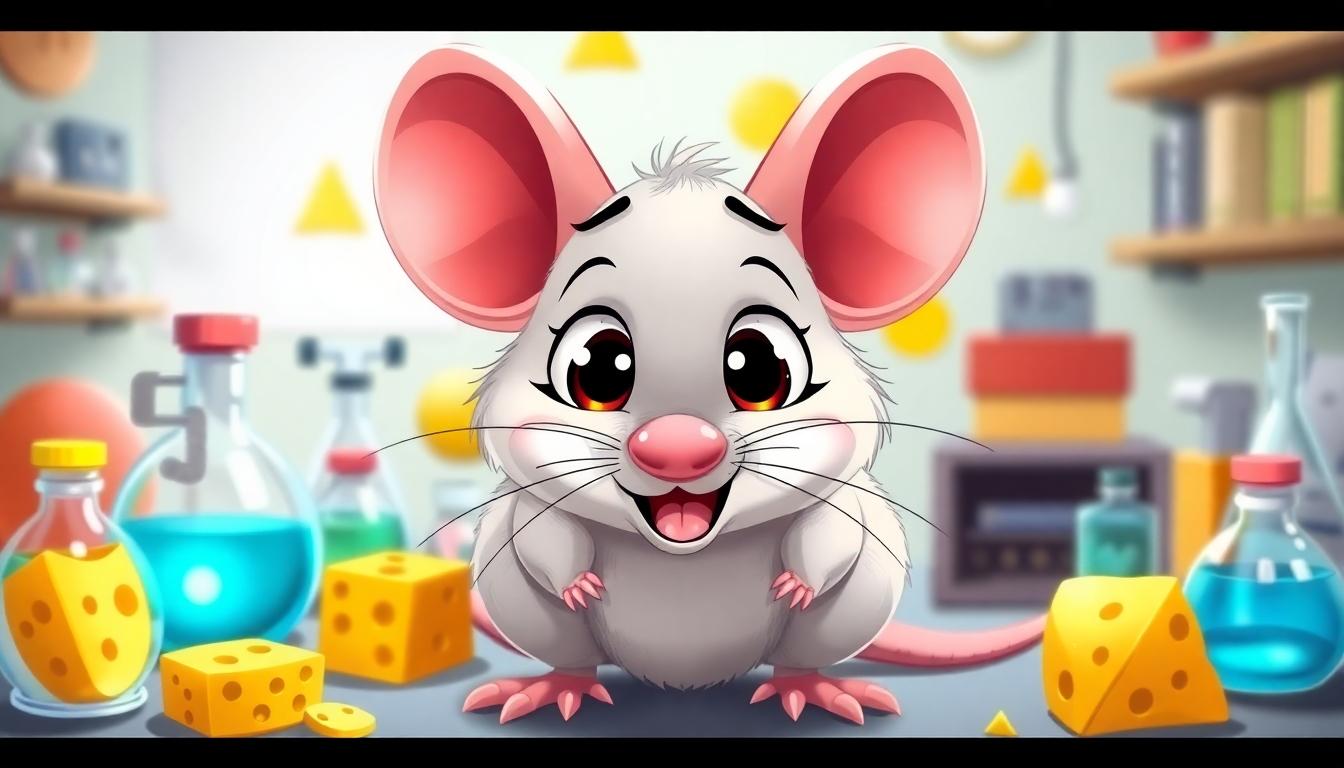
Understanding Ethical Boundaries
Rat-themed humor requires careful consideration of ethical boundaries, especially when referencing sensitive topics. Scientific research shows that rats exhibit complex social behaviors, including empathy-driven actions, which should inform how we create jokes about them. Making light of biomedical research involving rats may conflict with established ethical guidelines, particularly when the humor trivializes animal testing. We should recognize that context matters significantly when determining whether a rat joke remains tasteful or crosses into insensitive territory.
Topics to Avoid
Several subjects should remain off-limits when crafting rat jokes to ensure they maintain broad appeal:
- Laboratory experimentation references that mock or diminish the importance of ethical research standards
- Extermination humor that appears callous about public health concerns
- Disease associations outside of factual educational contexts
- Harmful stereotypes that pathologize rats beyond scientific reality
- Cruel treatment scenarios that normalize animal suffering
Studies by neuroscientists like Michael Brecht have identified that rats actually produce laughter-like ultrasonic vocalizations during play and tickling, which offers plenty of material for humor without resorting to potentially offensive topics.
Focusing on Positive Alternatives
The best rat jokes highlight the fascinating and endearing qualities these animals possess. Research dating back to Jaak Panksepp’s experiments in the 1990s documented rats’ playful responses to tickling, which can inspire lighthearted analogies without causing offense. We recommend:
- Emphasizing rats’ playful behaviors in your jokes
- Using their documented capacity for ultrasonic “laughter” (50kHz chirps) as inspiration
- Incorporating their impressive social bonding traits into punchlines
- Highlighting their intelligence and adaptability with respect
- Leaning into science-based observations rather than negative stereotypes
Anthropomorphism Done Right
Anthropomorphizing rats can create delightful humor when done respectfully. The periaqueductal gray brain region, which scientists have linked to rats’ playful vocalizations, offers fascinating material for jokes that humanize these creatures without mockery. We find that depicting rats with human-like qualities works best when:
- It’s based on actual observed behaviors
- The humor stems from curiosity rather than derision
- The joke celebrates rather than demeans their natural traits
- The punchline creates connection rather than distance between humans and rats
Scientific studies revealing rats’ capacity for empathy provide excellent foundations for humor that anthropomorphizes them tastefully.
Examples of Tasteful Rat Humor
Creating jokes that remain on the right side of ethical boundaries isn’t difficult with the right approach. For instance:
- “Why did the rat laugh? It finally got the cheese joke!” (References their documented vocalizations)
- “What’s a rat’s favorite research paper? The one with all the positive reviews!” (Acknowledges their role in science respectfully)
- “How do rats show they care? They never leave their friends be-hind!” (Based on their actual social bonding behaviors)
These examples demonstrate how scientific understanding of rat behavior can inform humor that’s both funny and considerate of ethical concerns about how we portray these complex creatures.
The Psychology Behind Why We Find Rat Jokes Funny
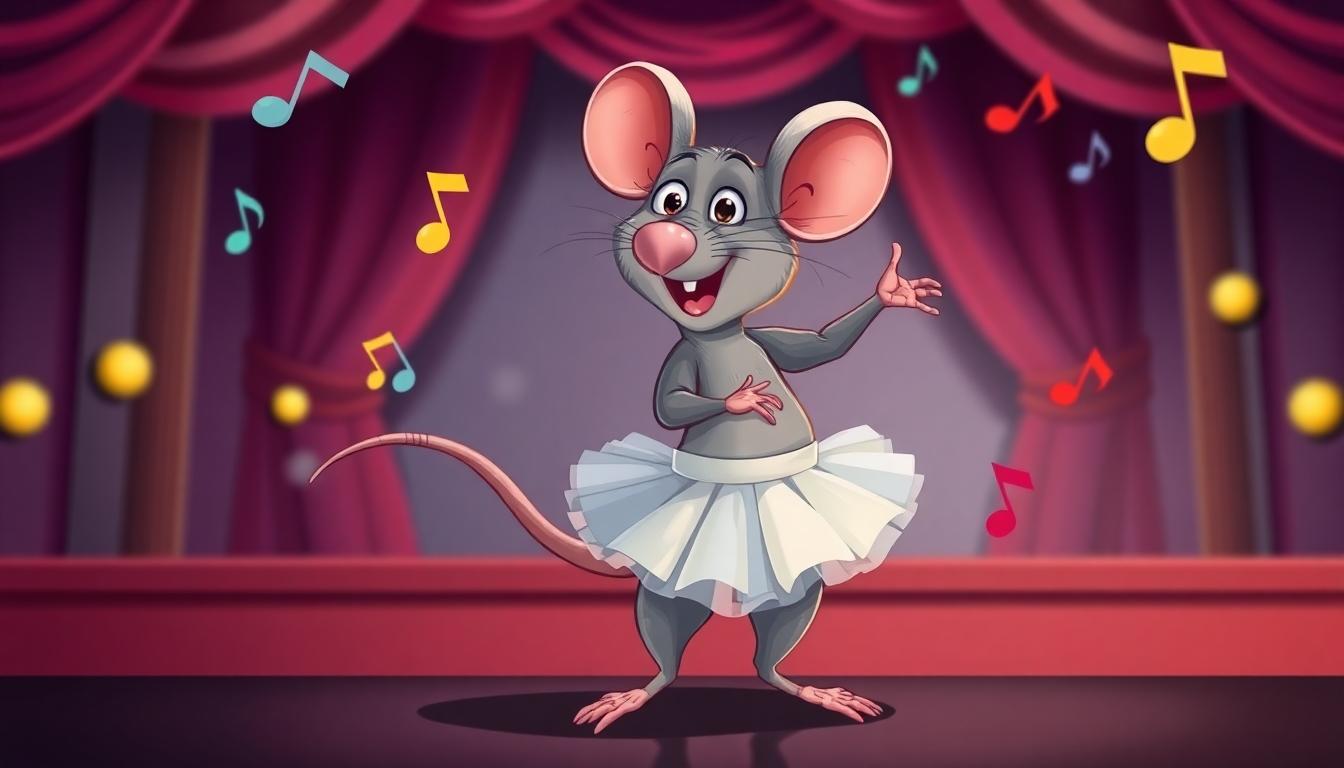
1. Cognitive Dissonance and Incongruity Theory
Humor often emerges from the unexpected clash between what we anticipate and what actually occurs in rat jokes. This cognitive dissonance creates a mental surprise that triggers laughter as our brains process this delightful inconsistency. The incongruity theory explains why jokes like “Why did the rat wear a tutu? He wanted to be a ballet squeaker!” make us chuckle—they combine completely unrelated concepts (rats and ballet) in a surprising way that challenges our expectations.
2. Social Relief Theory
Laughter serves as a powerful mechanism for releasing built-up tension or energy, especially when dealing with topics that might otherwise cause discomfort. Rat jokes provide this social relief by transforming something many people find unpleasant (rats) into something lighthearted and amusing. When we hear a joke like “What do you call a rat that loves to sing? A rat-tune!” we’re able to convert potential negative feelings about rats into positive emotions through humor.
3. Wordplay and Puns
Linguistic creativity forms the backbone of many rat jokes, captivating our brains in the pleasurable mental exercise of decoding clever language. Rat jokes frequently leverage puns and wordplay that tickle our intellectual funny bone, such as “What do you call a rat who loves math? A rat-hematician!” These jokes reward us with a sense of satisfaction when we connect the linguistic dots and understand the clever language manipulation.
4. Cultural Associations
Our shared cultural understanding about rats enriches the humor in rat-themed jokes and creates common ground for appreciation. Cultural references to rats—whether as pests, laboratory animals, or pets—add layers of meaning that enhance the jokes’ impact. Jokes that play on rats’ association with psychology experiments reveal our collective awareness of their role in scientific research, creating an intellectual dimension to the humor that goes beyond simple wordplay.
Conclusion: Why Rat Jokes Will Never Go Out Of Style
We’ve scurried through the industry of rat humor together and discovered just how versatile these jokes can be. From clever puns to family-friendly giggles there’s something for everyone in the area of rat comedy.
Rat jokes endure because they transform the ordinary into extraordinary humor connecting us through shared laughter. They’re adaptable evolving across platforms and generations while maintaining their charm.
Whether you’re a biology buff pet owner or just someone who appreciates a good pun rat jokes offer unexpected delight in our daily lives. So next time you need a quick laugh remember these whisker-twitching quips that prove great humor never goes extinct—it just evolves!
Frequently Asked Questions
Why are rat jokes popular on the internet?
Rat jokes have gained popularity due to their unexpected charm and universal accessibility. They appeal to diverse audiences, with children enjoying silly puns and adults appreciating more sophisticated humor. These jokes thrive on social media because of their adaptability and high engagement rates, often featuring rats in absurd human situations that resonate across various online communities.
What makes a good rat joke?
A good rat joke combines clever wordplay with relatable contexts. The best ones play on rat stereotypes (like cheese-loving or being sneaky) while using puns, rhymes, or alliteration to enhance the humor. Placing rats in human situations creates cognitive dissonance that triggers laughter. The most successful jokes are accessible yet unexpected, offering a surprise element that makes them memorable.
Are there family-friendly rat jokes suitable for children?
Yes! Many rat jokes are perfectly suitable for children of all ages. Examples include “What do you call a rat who loves to play basketball? A slam rat!” and “What did the rat say when he finished his puzzle? ‘I’m a real piece of work!'” These clean jokes work well in classroom settings or family gatherings and often feature simple wordplay that kids can understand.
What are some examples of “cheese-y” rat one-liners?
The article features several cheese-themed rat jokes perfect for parties, such as “What do you call a rodent that steals dessert? A pie-rat!” and “What’s a rat’s favorite dessert? Mice cream!” Other examples include “What’s a rat’s favorite sport? Rat-letics!” These short, punchy jokes rely on culinary wordplay and are great conversation starters.
How have rat jokes evolved throughout history?
While documented examples of historical rat jokes are scarce, rats have appeared in satirical works throughout history as symbols of cunning or unwelcome pests. During the Black Death, rats became subjects of dark humor as a coping mechanism. Modern entertainment has transformed rats into sympathetic characters, as seen in films like “Ratatouille,” reflecting society’s evolving relationship with these rodents.
Can rat jokes be educational?
Yes! The article highlights scientifically accurate rat jokes that blend rodent research with clever wordplay. These jokes often reference laboratory settings, behavioral experiments, and biological facts about rats. They appeal particularly to biology enthusiasts and educators looking to make learning more engaging through humor that’s both funny and factually sound.
How can I create my own original rat jokes?
Start by combining rat traits with creative wordplay or placing rats in relatable human contexts. Use brand parodies, rhymes, and alliteration to enhance humor. Draw from common rat stereotypes like laboratory subjects, urban pests, or food preferences. The article provides specific formulas like “What do you call a rat who [does something human]? A [pun on rat]!” to help you craft your own whisker-twitching humor.
Are there ethical considerations when making rat jokes?
Absolutely. The article emphasizes avoiding sensitive topics like animal testing and extermination humor. Instead, focus on rats’ positive attributes like intelligence and playfulness. Create jokes that anthropomorphize rats respectfully rather than degrading them. Remember that rats display complex social behaviors including empathy, and ethical humor celebrates these qualities rather than perpetuating harmful stereotypes.
Why do we find rat jokes funny psychologically?
According to the article, concepts like cognitive dissonance and incongruity theory explain our laughter—we find humor in the unexpected combination of rat behaviors with human situations. Social relief theory suggests that jokes transform our discomfort about rats into lightheartedness. Additionally, the intellectual satisfaction from understanding wordplay and cultural associations with rats enhances our enjoyment of these jokes.
What’s the difference between rat jokes for adults versus children?
Adult rat jokes often feature more sophisticated wordplay, cultural references, and occasionally light innuendo, while children’s rat jokes focus on simple puns, physical comedy, and straightforward setups. Adult jokes might reference work environments or complex situations, whereas children’s jokes emphasize playful scenarios and easily understandable punchlines. Both types share the core elements of wordplay and rat stereotypes but differ in complexity.







